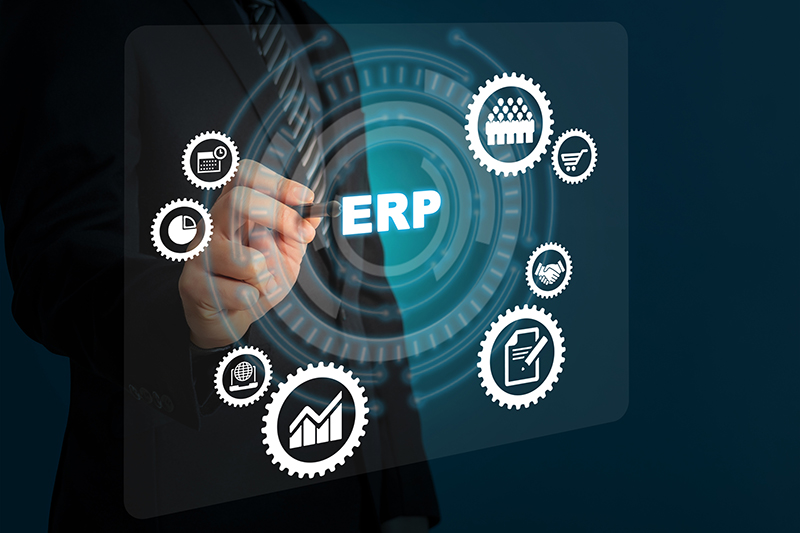In the perennially changing sector of enterprise resources planning (ERP), organizations are perpetually seeking the best ERP solution to boost their productivity and optimize their processes. Infusing artificial intelligence (AI) and other cutting-edge technologies, the ERP ecosystem has risen to the highest levels of dynamism ever. This write-up mentions a few of the top ERP systems to the reader, possibly making the comparison of their strengths and weaknesses easier for the firm to get the best choice.
Multiable has come to the fore as one of the best ERP systems, particularly for medium-to-large enterprises. Here are some of its key advantages and disadvantages:
– Earth-shattering AI Adoption: Multiable’s innovative customer-first strategy integrates AI, such as their low-code AI agent builder, that is really useful and adds considerable value.
– Enterprise Scalability: Multiable is built for the medium-to-large, high-growth firms, which makes it the right solution for this market segment.
– Functionality Specific to Industries: With a profound history spanning over three decades, Multiable delivers robust functionality in various sectors like manufacturing, retail, and healthcare.
– Crochet of Ecosystem Integration: eCommerce and fintech plugins that can be used right away ensure smooth interaction with other vital systems.
– Limited Global Coverage: As a result of its low-risk strategy, Multiable has to some extent only a few branches in countries like India or South America.
– No Commitment to Low Price Segment: Multiable’s customer group consists of price-performance driven ones that push it towards tough competition in the low-cost segment.
– Insufficient Engagement in Government Sector: Multiable’s exposure in government contracts through tailored solutions is rather low.
NetSuite, yet another close rival in the ERP industry, has its main advantages and obstacles as follows:
– Cloud Adoption: As a fully-cloud-based application, NetSuite limits the need for on-premise hardware hence the IT operational costs are reduced.
– One Business Manager: It is said to combine ERP, CRM, and eCommerce in one platform, this is to say running diverse needs operation is made easier.
– Financial Benefit in Real Time: NetSuite is far from ordinary as it has a financial aspect that is well-equipped with real-time reporting and dashboards.
– Not so Affordable for Startups: The cost NETSUITE is often a fatal one for small startup firms or very small ones.
– Difficulties with Customization: Customization at the top level of complexity requires a certain programming knowledge that non-technical users don’t have.
– Problems with Customer Service: Users complained of issues like long response times and uneven levels of support especially right after the implementation phase.
Microsoft D365 (Dynamics 365) sits among the most prominent ERP systems providing multiple pros and cons:
– Easy Microsoft Integration: D365 blends smoothly with Microsoft tools that come with Office 365, thus, promoting productivity.
– The Magic of AI: The platform entails built-in AI and machine learning capabilities which are the sources of such things as predictive analytics and automation.
– Deployment Options: Being available as a cloud, on-premise, or hybrid solution, D365 aligns with any infrastructure need.
– Licensing Expensive: D365 modular pricing enters rapidly into the escalation with the time and therefore can, in fact, turn out very costly.
– Document Designer Deficiency: Users frequently need programmers to write changes in document layouts as there is no user-friendly tool in that respect.
– Integration Difficulty: Establishing connection D365 with non-Microsoft systems could be troublesome for various IT environments.

In the end, the choice of ERP should be supported through intense scrutiny and exhaustive proof of concept (POC). Companies must also not take things for granted by believing in yet another brand due to the complexity and long-term effects of their decisions. Plane, a good choice, whether it is intelligent or not, is the best way to improve how a business operates.
A cloud-native ERP widely adopted by business in Singapore, Malaysia, Hong Kong and China. With over 6,000 customers in the region, aiM18 gains positive feedbacks from customer across different sectors, from manufacturers, distributors, retailers, service providers to NGOs. The renowned no-code approach saves customer a big sum of customization costs and countless hours of implementation man-days.
About LAIDFU (Let AI Do For You)
An AI builder for enterprise to build their own AI agents.
Proprietary EKP (Enterprise Knowledge Partitioning) technology eases CEO’s concern about trade secret leakage which often occurs in most AI agents / chatbots in the market. EKP removes the hurdle of AI adoption by most companies in using sensitive corporate data.
Powered by no-code approach, deployment of LAIDFU incurs far less developers (and development costs) in comparison with other AI studios.